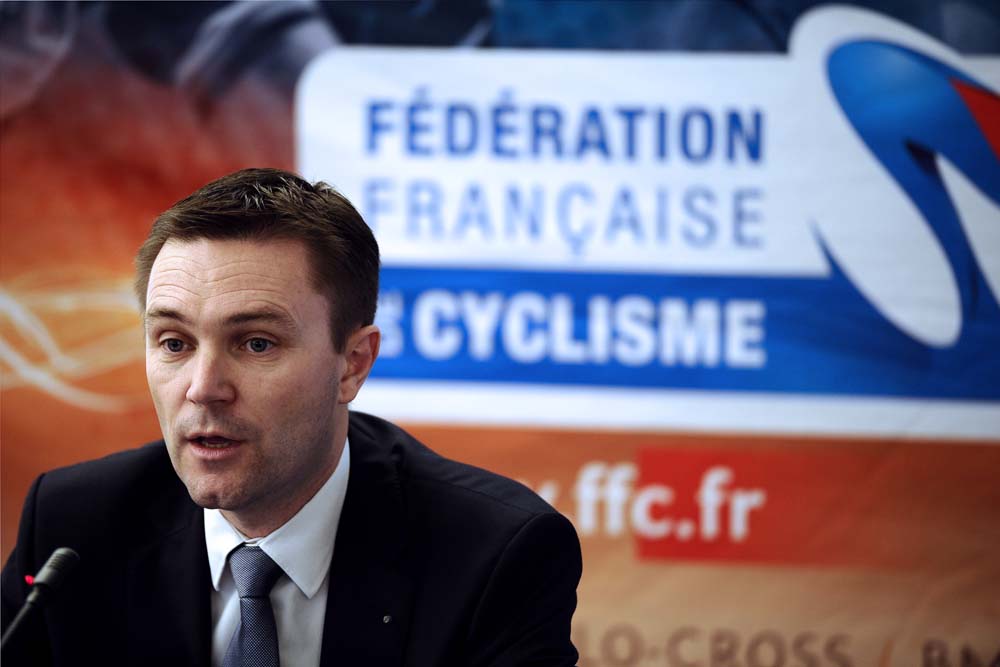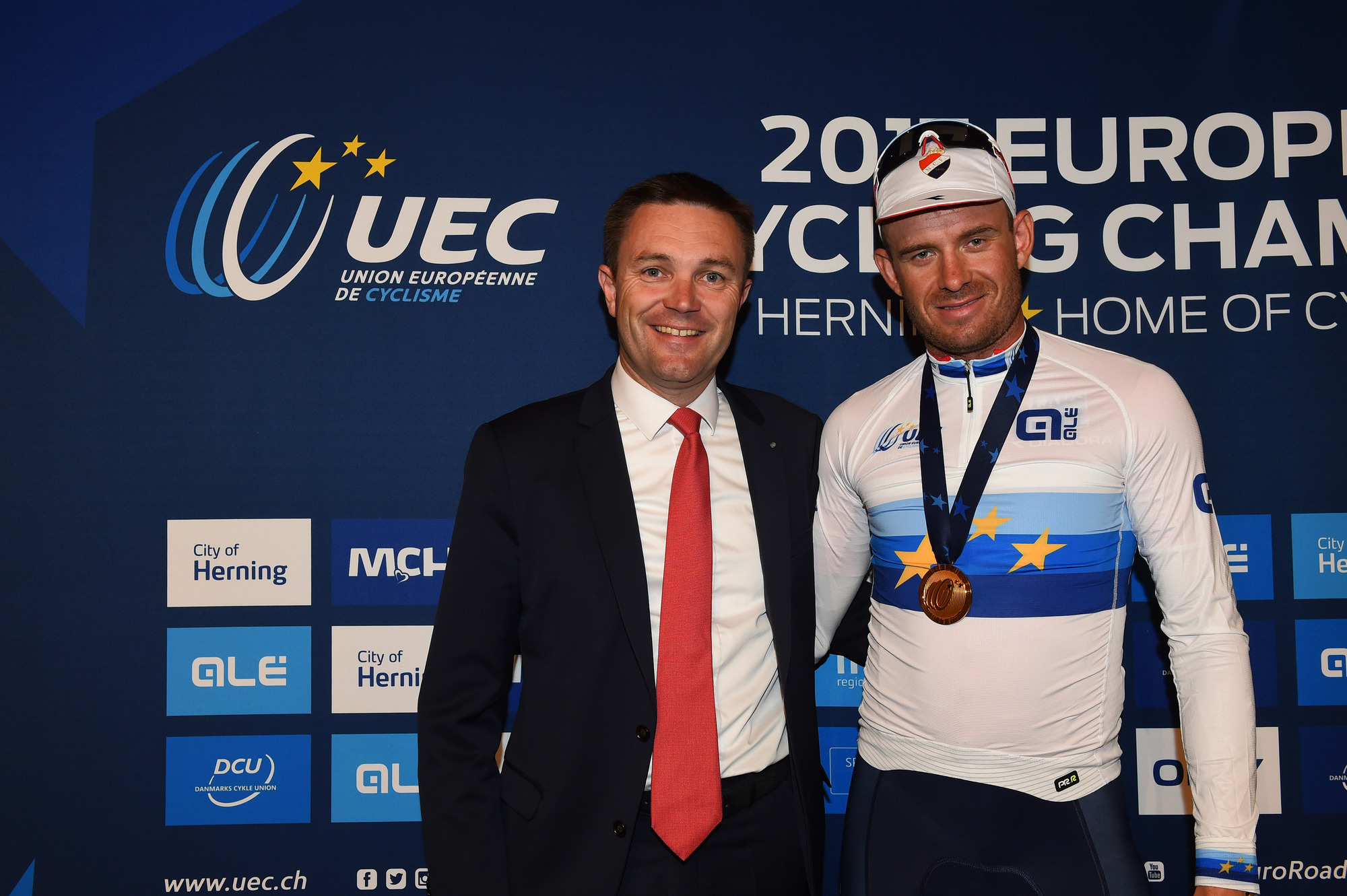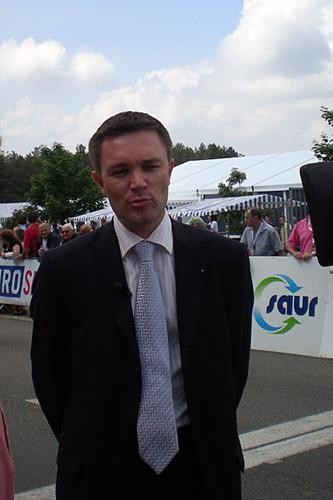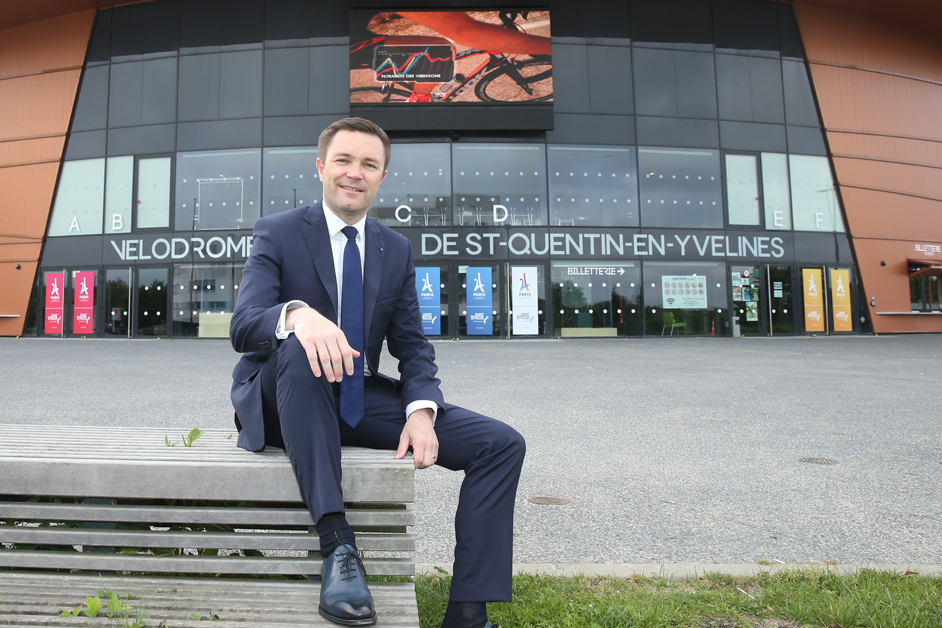Lappartient pledges more stringent testing against mechanical doping
'We'll move before the end of the year on the matter of technological fraud'





UCI president David Lappartient has reiterated his pledge to introduce more stringent testing for mechanical doping and intimated that the new measures will be announced before the end of the year.
Lappartient defeated incumbent Brian Cookson in the UCI presidential election in Bergen in September, having made the eradication of mechanical doping one of the cornerstones of his campaign. In the lead-in to the UCI election, a report by France Télévisions and Il Corriere della Sera demonstrated the apparent ineffectiveness of the UCI's current, tablet-based method of testing for mechanical doping.
In an interview with Belgian broadcaster RTBF, Lappartient said that improving the UCI's measures against mechanical doping – or technological fraud – was one of his chief objectives as president.
"There are some priorities: I've said clearly that we'll move before the end of the year on the matter of technological fraud – and we're working on it. We'll soon make known the progress of our work," Lappartient told RTBF.
Tour de France director Christian Prudhomme welcomed Lappartient's election as UCI president during his keynote speech at the route presentation last month, and again stressed the importance of combating mechanical doping.
"What Christian Prudhomme wants above all is for suspicion to be swept away, and it's normal that he is counting on the authorities to do that," Lappartient said. "It's the role of the Union Cycliste Internationale to guarantee the credibility of the sporting results. That's what's expected of the UCI, and so that's where we have to take action. We will do that and we will be irreproachable in this area."
Belgian under-23 cyclo-cross rider Femke Van den Driessche is the only athlete to have been sanctioned by the UCI for technological fraud to date, and she was handed a six-year ban after a motor was discovered in one of her bikes at the 2016 Cyclo-cross World Championships.
The latest race content, interviews, features, reviews and expert buying guides, direct to your inbox!
In July of this year, a 53-year-old amateur rider was caught using a motor at a race near Brescia in Italy, while a 43-year-old French amateur was found to have used a motor in a race in the Dordogne last month.
As yet, there have been no confirmed cases of mechanical doping at professional level on the road, and Lappartient downplayed the idea that cheats might already be several steps ahead of the testers.
"It seems to me that it is easier to detect technological elements in a bike than to detect a doping product in the human body. You need to have the will," Lappartient said.
"To my mind, it's not about using just one method of testing, but several methods together, and we'll do everything we can. The tablets can be useful, but they're not a silver bullet. We'll need to use other means as well. We're going to work with researchers, universities and industry to develop new methods of testing."
